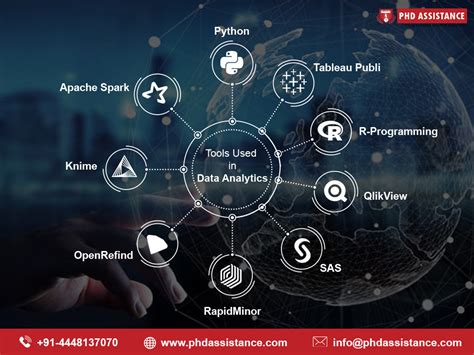In today’s digital age, data has become a driving force behind decision-making in various industries. The field of data analytics has seen incredible growth and continues to be a pivotal aspect of businesses and organizations worldwide. In this blog post, we will delve into the world of data analytics, exploring its basics and importance, various techniques, and real-world applications. We will also discuss the role of data scientists in this field and the common challenges they face. Additionally, we will touch on ethical considerations and the tools and technologies that are shaping the future of data analytics. Join us as we uncover the power of data and the impact it has on driving business decisions and shaping the world around us. Whether you are a seasoned data analyst or simply curious about this fascinating field, this blog post will provide valuable insights and information on the current trends and advancements in data analytics.
Table of Contents
The Basics of Data Analytics
Data analytics is the process of analyzing, interpreting, and visualizing data in order to discover useful information and make informed decisions. It involves the use of various tools and techniques to extract meaning from large sets of data, and is often used in fields such as business, science, and healthcare.
One of the most important aspects of data analytics is the ability to collect and store data in a way that makes it accessible and useful for analysis. This can involve the use of databases, data warehouses, and other storage systems to organize and manage large amounts of data.
Another key component of data analytics is the use of statistical and mathematical methods to identify patterns and trends within the data. This can include the use of algorithms and machine learning techniques to automate the process of analysis and identify valuable insights.
Overall, the basics of data analytics involve the collection and storage of data, the use of statistical and mathematical methods to analyze the data, and the visualization and interpretation of the results in order to make informed decisions.
Why Data Analytics is Important
Data analytics is important for businesses because it helps them make more informed decisions based on data-driven insights. By analyzing large volumes of data, organizations can identify trends, patterns, and correlations that can help them improve their operational efficiency, customer satisfaction, and overall performance. In today’s competitive business environment, it’s crucial for companies to use data analytics to stay ahead of the competition and make strategic decisions.
Another reason why data analytics is important is that it can help businesses identify new opportunities for growth and expansion. By analyzing consumer behavior, market trends, and other relevant data, companies can uncover new business opportunities and develop targeted strategies to capitalize on them. This can ultimately lead to increased revenue, market share, and brand recognition.
In addition, data analytics can also help businesses mitigate risks and prevent potential losses. By analyzing historical data and identifying potential risks, organizations can take proactive measures to minimize their impact and protect their resources. This is especially important in industries such as finance, insurance, and healthcare, where accurate risk assessment and management are critical for success.
Furthermore, data analytics is important for businesses because it can enhance their customer experiences. By analyzing customer data, companies can gain a deeper understanding of their needs, preferences, and behaviors, which can help them personalize their products, services, and marketing efforts. This can lead to higher customer satisfaction, brand loyalty, and retention rates, ultimately driving business growth and success.
Types of Data Analytics Techniques
Data analytics is a powerful tool for businesses looking to make better decisions, improve processes, and better understand their customers. There are several types of data analytics techniques that can be used to achieve these goals. One such technique is descriptive analytics, which focuses on understanding the past through the use of historical data. This can include identifying trends, patterns, and outliers in order to gain insights into what has happened.
Another important type of data analytics technique is diagnostic analytics, which is focused on understanding why something happened in the past. This can involve drilling down into the data to find the root cause of a problem or opportunity. By understanding why certain events occurred, businesses can better inform their decision-making processes.
Predictive analytics is a technique that involves using historical data to predict future events. This can include forecasting sales, predicting customer behavior, or anticipating market trends. By using predictive analytics, businesses can better prepare for the future and make more informed strategic decisions.
Lastly, there is prescriptive analytics, which goes beyond predicting what will happen and recommends actions to take based on those predictions. This type of analytics can be particularly powerful in guiding business decisions and helping companies to proactively address potential outcomes.
Using Data Analytics to Drive Business Decisions
Businesses today are inundated with an overwhelming amount of data from various sources. This data can be incredibly valuable in making informed and strategic decisions. By leveraging the power of data analytics, businesses can gain insights that can help drive crucial business decisions. From understanding customer behavior to predicting market trends, data analytics plays a pivotal role in enabling organizations to make data-driven decisions that can have a significant impact on their bottom line.
One of the key benefits of using data analytics to drive business decisions is the ability to identify patterns and trends. Through the use of advanced statistical analysis and machine learning algorithms, businesses can uncover hidden patterns within their data that may not be immediately apparent. These insights can be used to optimize processes, identify new opportunities, and mitigate potential risks.
Furthermore, data analytics allows businesses to assess the effectiveness of their strategies and initiatives. By tracking key performance indicators (KPIs) and conducting thorough performance analysis, organizations can gain a comprehensive understanding of the impact of their decisions. This information is invaluable in guiding future actions and ensuring that resources are being allocated effectively.
Ultimately, the use of data analytics to drive business decisions empowers organizations to make informed choices that are backed by data-driven insights. In today’s competitive business environment, leveraging the power of data analytics can be a game-changer for businesses looking to stay ahead of the curve and make smarter, more strategic decisions.
The Role of Data Scientists in Analytics
Data scientists play a crucial role in the field of data analytics, using their expertise to extract insights and knowledge from large sets of structured and unstructured data. They are responsible for developing data models, designing and implementing algorithms, and creating statistical models to analyze and interpret complex data sets. Additionally, data scientists are skilled in programming languages such as Python, R, and Java, and are proficient in working with big data tools and technologies to process and manage vast amounts of data.
Moreover, data scientists collaborate with cross-functional teams to identify business problems, collect and analyze data, and develop innovative solutions to drive business growth and performance. They are also involved in the development and implementation of machine learning models and predictive analytics to help businesses make informed decisions and gain a competitive edge in their respective industries.
Furthermore, data scientists are at the forefront of data visualization, using advanced analytics tools to create meaningful and compelling visual representations of data insights, patterns, and trends. This enables stakeholders and decision-makers to easily understand and interpret complex data, leading to more informed decisions and strategic actions.
In conclusion, the role of data scientists in analytics is indispensable, as they possess the skills, knowledge, and expertise to unlock the value of data, drive business innovation, and empower organizations to thrive in today’s data-driven world.
Common Challenges in Data Analytics
One of the common challenges in data analytics is the issue of data quality. Oftentimes, the data may be incomplete, inconsistent, or contain errors, leading to inaccurate analysis and conclusions. Without high-quality data, the results of data analytics efforts may be unreliable, making it difficult for organizations to make informed decisions.
Another challenge is the lack of skilled professionals in the field of data analytics. As the demand for data scientists and analysts continues to grow, there is a shortage of individuals with the necessary expertise and knowledge to handle complex data analytics tasks. This shortage can hinder an organization’s ability to fully leverage the power of data analytics for strategic decision-making.
Furthermore, data privacy and security concerns pose a significant challenge in data analytics. With the increasing focus on data protection and regulations such as GDPR, organizations must ensure that they are handling and analyzing data in a compliant manner. Failure to address privacy and security issues can result in legal repercussions and damage to the organization’s reputation.
Lastly, the integration of data analytics into existing business processes can be a major challenge. Organizations may face resistance from employees who are not familiar with or do not understand the value of data analytics. Additionally, legacy systems and outdated infrastructure can make it difficult to effectively integrate data analytics tools and technologies into the day-to-day operations of the business.
Data Analytics in Action: Real-world Examples
Data analytics is a powerful tool that can be applied in various real-world scenarios to drive insights and make informed decisions. One example of data analytics in action is in the healthcare industry, where companies are using this technology to analyze patient data and identify trends in diseases and treatments. This has led to improved patient care and better outcomes. Another example is in the retail industry, where companies are using data analytics to understand customer behavior and preferences, leading to more targeted marketing campaigns and personalized shopping experiences.
Furthermore, in the field of finance, data analytics is being used to detect fraudulent activities and manage risks more effectively. By analyzing large volumes of data, financial institutions are able to identify patterns and anomalies that may signal potential threats. In the transportation industry, data analytics is being used to optimize routes, reduce fuel consumption, and improve overall operational efficiency. This has led to cost savings and a more sustainable approach to transportation.
Overall, these real-world examples demonstrate the immense potential of data analytics in transforming various industries and driving positive change. As technology continues to advance, we can expect to see even more innovative applications of data analytics in the future.
It is important for businesses and organizations to embrace this technology and leverage its capabilities to gain a competitive edge and achieve their goals.
Ethical Considerations in Data Analytics
Data analytics has become increasingly important in today’s technology-driven world, but with this rise in importance comes new ethical considerations that must be taken into account. One of the key ethical considerations in data analytics is the need to prioritize privacy and data protection. As data analysts, it is crucial to ensure that the data being used is obtained and handled in a legal and ethical manner, and that individuals’ privacy rights are respected.
Another important ethical consideration is the need for transparency and accountability in the data analytics process. It is essential for data analysts to be clear about the methods and techniques used in their analysis, as well as the implications of the findings. This transparency allows for greater trust and understanding among stakeholders, and helps to minimize the potential for misuse or misinterpretation of the data.
Additionally, data analysts must be cognizant of potential biases in their data and analysis. It is important to recognize and address any biases that may be present, whether they stem from the data itself or from the analyst’s own assumptions or perspective. Failing to acknowledge and mitigate biases can lead to erroneous conclusions and decisions, which can have significant ethical implications.
Lastly, there is an ethical responsibility to use data analytics for the greater good. While data analytics can be used to drive business decisions and improve efficiency, it is essential to consider the broader impact of these decisions on individuals and society as a whole. It is important for data analysts to weigh the potential benefits against any potential harms, and to prioritize ethical considerations in their work.
Tools and Technologies for Data Analytics
When it comes to data analytics, having the right tools and technologies at your disposal is crucial for success. There are a wide variety of options available, each with its own strengths and weaknesses. It’s important to understand the different types of tools and technologies that can be used in the field of data analytics.
One of the most commonly used tools in data analytics is Microsoft Excel. This software is widely known for its spreadsheet capabilities, making it a popular choice for organizing and analyzing data. With features such as pivot tables and data visualization tools, Microsoft Excel is a go-to option for many data analysts.
Another important technology for data analytics is Python. Python is a versatile programming language that is commonly used for data manipulation and analysis. With its extensive libraries such as pandas and numpy, Python has become a staple in the data analytics world.
For more complex analysis, tools such as R and SQL are commonly used. R is a programming language specifically designed for statistical analysis and visualization, while SQL is used for managing and manipulating relational databases. These tools are essential for data analysts working with large datasets and complex queries.
Trends in the Field of Data Analytics
Data Automation: One of the emerging trends in the field of data analytics is the increased focus on data automation. With the growing volume of data being generated, organizations are looking for ways to streamline their data processing and analysis. This trend involves the use of automated tools and technologies to handle repetitive tasks, allowing data analysts to focus on more strategic work.
Advanced Machine Learning: Another significant trend in the field of data analytics is the use of advanced machine learning techniques. As data continues to grow in complexity, organizations are seeking more sophisticated methods for extracting valuable insights. Advanced machine learning algorithms can help in identifying complex patterns and making more accurate predictions, leading to improved decision-making processes.
Increased Adoption of Cloud Computing: Cloud computing has been playing a key role in the evolution of data analytics. With the scalability and flexibility offered by cloud-based platforms, organizations are increasingly turning to cloud computing for their data storage and processing needs. This trend is expected to continue as more organizations realize the benefits of cloud-based data analytics solutions.
Focus on Data Privacy and Security: In light of recent data breaches and privacy concerns, there is a growing emphasis on data privacy and security in the field of data analytics. Organizations are strengthening their data governance practices and adopting stricter security measures to protect sensitive data. This trend reflects the increasing importance of ethical considerations in the practice of data analytics.






